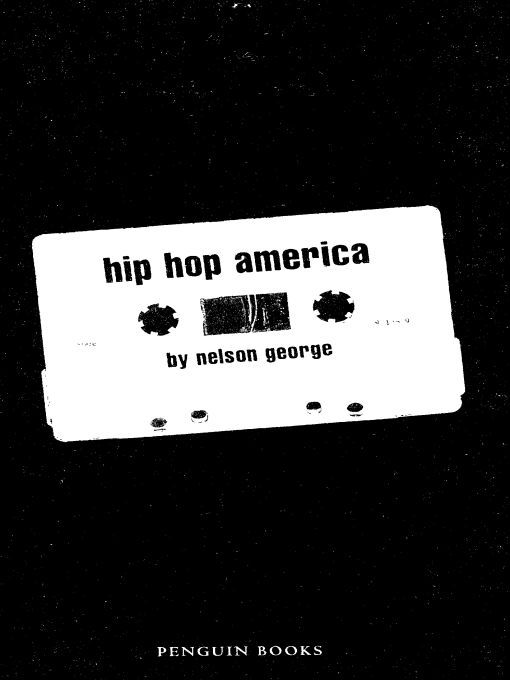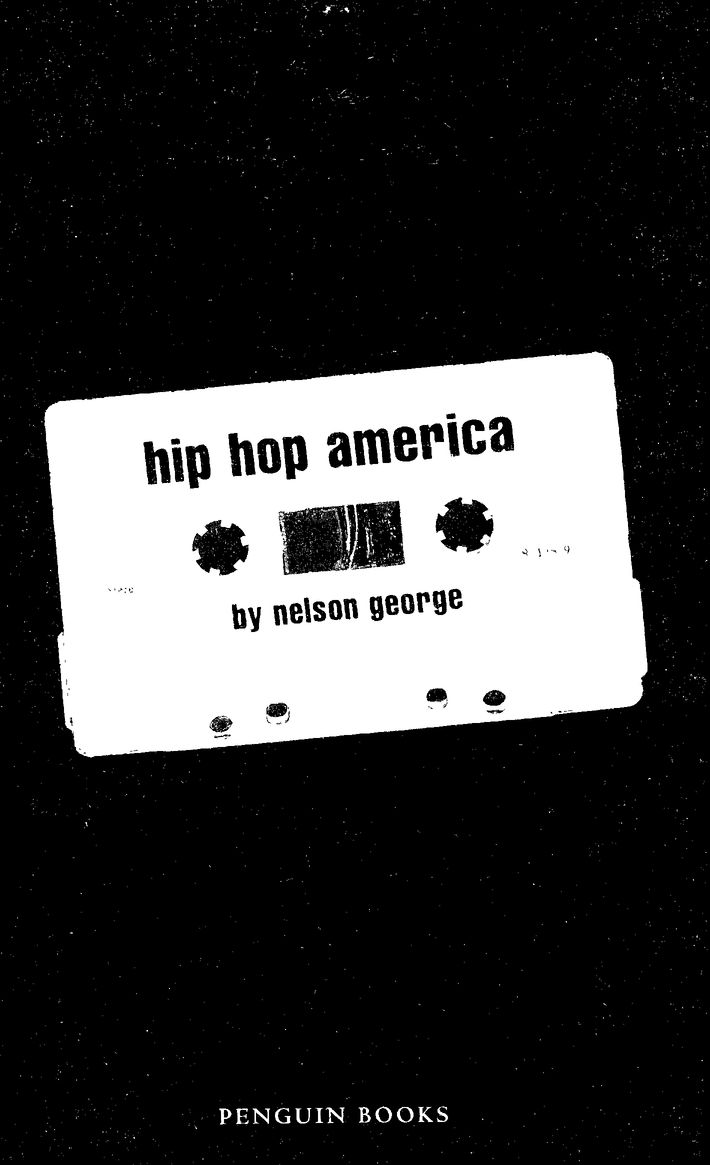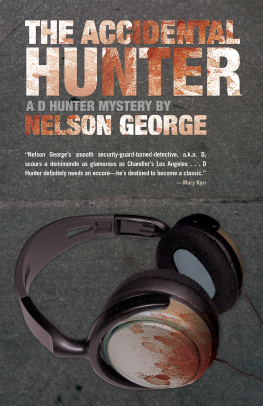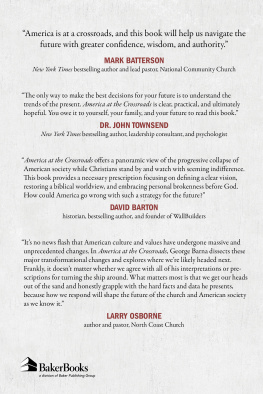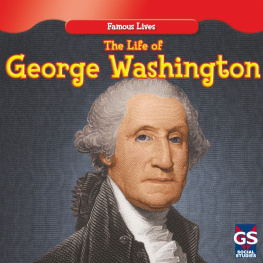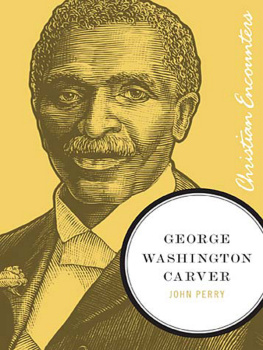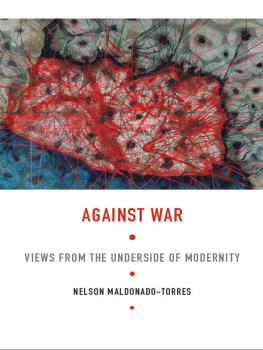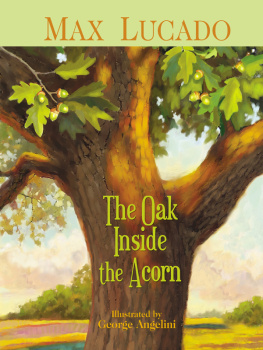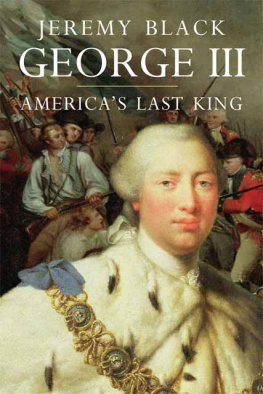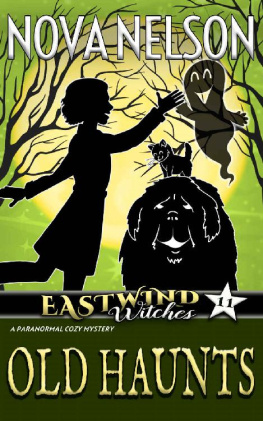Table of Contents
PENGUIN BOOKS
HIP HOP AMERICA
Nelson George is the author of ten nonfiction books on African-American culture and of four novels. He has received two ASCAP-Deems Taylor Awards, a Grammy, and two American Book Awards from the Before Columbus Foundation for Hip Hop America and Elevating the Game. Hip Hop America and The Death of Rhythm & Blues were also finalists for the National Book Critics Circle Award. He has written for national magazines, including Playboy, Billboard, Esquire, Spin, Essence, and The Village Voice, and has written and produced several television programs as well as two feature films. His new film Everyday People recently premiered on HBO. He was born in Brooklyn, New York, where he still lives.
for my family
introduction
WE WOULD LIKE TO LIVE AS WE ONCE LIVED, BUT HISTORY WILI NOT PERMIT IT.
PRESIDENT JOHN F. KENNEDY NOVEMBER 1963
IN THE 30s, ON ANY BALMY SUMMER EVENING THROUGHOUT THE rural South, the evenings entertainmentboxingwould usually begin with a battle royal. This regal name hardly describes the nature of the event. A gang of colored youngstersranging from adolescent to college agegathered in a boxing ring for a blindfolded, no-holds-barred brawl. There were no weapons except fists, but the physical damage that ensued in the frenzy was monumental. The last man standing won a nominal prize that hardly compensated for the broken teeth and fractured bones resulting from these gang bangs.
To the (white) audiences who witnessed these battles royal, it was an appetizer for an entire night of manly action. Ernest Hemingway, that definer of all things American and masculine, used to organize battles royal for boxing events he hosted in his beloved Key West, Florida.
For the young black men who pummeled each other in the quest for a bit of spare change, it was a chance to prove their toughness to friends, rivals, and themselves. For the biggest and most brutal participants, it was a way to get paid and, in a weird way, flaunt the physical power that the white viewers otherwise feared in everyday life. For white audiences, the heated bout allowed them to see the blacks as comical figures whose most aggressive urges were neutered for their amusement.
At certain moments, when hip hop is at its most tragically comic, I can imagine it as a 90s battle royal, where young African Americans step into an arena to verbally, emotionally, and, yes, physically bash each other for the pleasure of predominantly white spectators worldwide. Ralph Ellisons description of a battle royal in Invisible Man could be a contemporary rap lyric: I played one group against the other, slipping in and throwing a punch then stepping out of range while pushing the others into the melee to take the blows blindly aimed at me. The smoke was agonizing and there were no rounds, no bells at three minute intervals to relieve our exhaustion. The room spun round me, a swirl of lights, smoke, sweating bodies surrounded by tense white faces.
But most of the time I know, and Im grateful, that this is the 90s, not the 30s. Battling may be essential to hip hops evolution and the energy that keeps it dynamic, but its manifestations and effects are too complex and often contradictory for a single metaphor, no matter how resonant, to capture its essence. There is the will to battle, but other threads in its fabric involve fun, dance, literature, crime, sex, and politicstoo many to simply say that hip hop means any one or even two things.
Think about this post-soul moment: One New York afternoon youre checking out that funky pop-jazz standard from 1975, Mr. Magic by Grover Washington, Jr., on the black oldies station KISS-FM. Then you move a few spots down the dial to the hip hoporiented Hot 97 and hear the music from Mr. Magic sampled to create the backing track on Candy Rain, a 1995 techno-R&B hit by a teenage vocal group named Soul for Real, most of whose members werent born when Mr. Magic first appeared. In the post-soul era, shards of the black past exist in the present at odd and often uncomfortable angles to each other.
At its most elemental level hip hop is a product of postcivil rights era America, a set of cultural forms originally nurtured by African American, Caribbean American, and Latin American youth in and around New York in the 70s. Its most popular vehicle for expression has been music, though dance, painting, fashion, video, crime, and commerce are also its playing fields. Its a postmodern art in that it shamelessly raids older forms of pop culturekung fu movies, chitlin circuit comedy, 70s funk, and other equally disparate sourcesand reshapes the material to fit the personality of an individual artist and the taste of the times.
In 1987, I wrote a book titled The Death of Rhythm and Blues, which looked at the transformation of black music within the white-dominated music industry from the 30s to the 80s. It was about music, but also business, the media, integration, politics, and the intersection of race and economics in contemporary America. It was a different way of telling the story of civil rights and the generation that fought for them on both sides of the color line. I ended the book with some pretty gloomy predictions about the diluting effects of assimilation, but I was able to point to some artists and producers who seemed to be following a different agenda, one more centered around the survival of a black culture. Now we know that rap music, and hip hop style as a whole, has utterly broken through from its ghetto roots to assert a lasting influence on American clothing, magazine publishing, television, language, sexuality, and social policy as well as its obvious presence in records and movies.
Hip Hop America looks at how hip hops aesthetic was created, mutated, and affected America (and the world) in the last three decades of the twentieth century. The story goes way beyond the A&R offices of the music industry. It is about the society-altering collision that has taken place during the last two decades between black youth culture and the mass media, about the discovery (and maybe hijacking) of black youths as creators and consumers. It looks explicitly at how advertisers, magazines, MTV, fashion companies, beer and soft drink manufacturers, and multimedia conglomerates like Time-Warner have embraced hip hop as a way to reach not just black young people but all young people. It is an extension of the mid-70s record biz concept of crossover, which itself was a by-product of Motowns 60s success; at some point Run-D.M.C. became the Supremes. But in the 90s, with more sophisticated marketing techniques and more complicated motions across old racial boundaries, the payoffs are bigger than Berry Gordy could cash in on. Soul music in the 60s, which is so heavily sampled by rap, is literally the foundation that the post-soul generation stands on, yet at the same time, subverts and even ridicules. And like soul, in many ways, hip hop no longer belongs to its very creators. How did that happenagain?
Im offering no single organizing theory for understanding hip hop because I think its use, and therefore its meaning, has evolved too rapidly since it first appeared on the national radar screen back in 1979. However, I do hope to communicate a sense of its multifaceted, interactive nature. It might be that to truly understand hip hop you need a masters degree in sociology, a stint in the joint,

